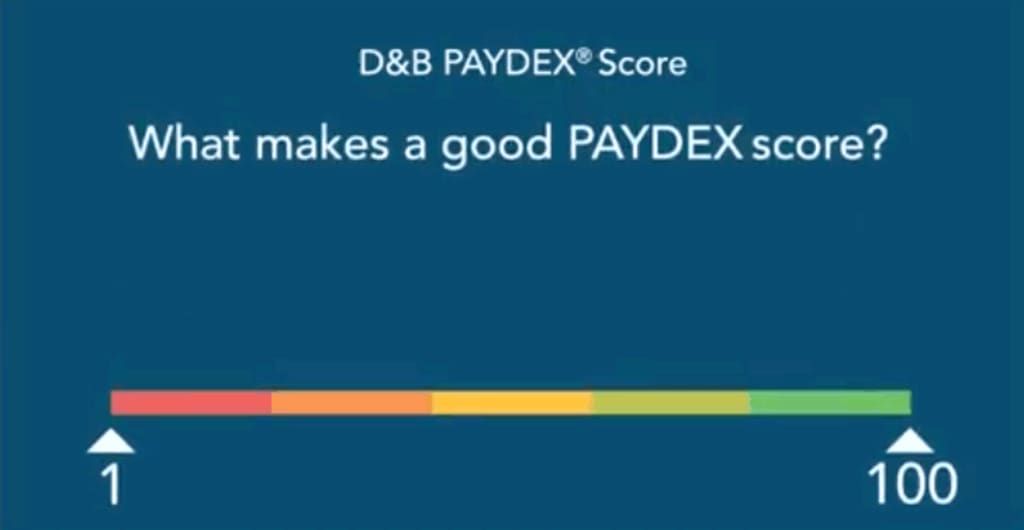Business Credit 101
What is a PAYDEX Score?

There are nearly 35 million businesses across the United States. Each one of those businesses has it's own credit identity, it's own likeness, its customers, its suppliers, all of them coming together, hand in hand to make our nation the free market juggernaut that it is today. And yet, so many individuals, business owners included, not realizing that business credit is nothing like personal credit.
The fact is that personal credit revolves around finance - strictly based on what we ow. Business credit revolves around accountancy - what you credit against your books in order to function, around spending in short. A business credit report is really more of a trade report. Additionally, the world of personal credit says that everyone is equal in the world of credit, and that one score sums up everything regarding your personal finances. In business though, there are over 84 different scores and ratings, each of them telling a different story about your business, who you are, what you do, whether or not you post on social media and how viral your company's posts go, and even a rating that says how likely it is your business has been impacted by COVID-19.
In this article, I'll break out the various factors surrounding the PAYDEX Score. The PAYDEX Score is administered and was created by data-giant Dun & Bradstreet. It's a summarized, dollar weighted average of how you pay your bills - are they early, on-time or late.
The score range runs from 1 to 100, and in order to have a score, you have to have at least three trade experiences within your company's profile with D&B, with at least one of those experiences having Net Terms of some sort attached to it.
A score of 1 means you can't pay a bill on time to save your life, and on average things look like they've all been sent to collections, or are 6 months or more beyond terms. A score of 100 is also terrible - it means that you pay every last bill before you're ever even invoiced by a supplier or vendor. Think about it like this - it's like going to the grocery store, peeling off $100 bills and walking out of the store, leaving your change, and grabbing your groceries, all before the cashier hits the total button.
A score of 80, however means that everything is on time, 70 puts you 15 days beyond terms, 60 at 22 days, and so on and so forth. However, a good score is always relative. There is no such thing as a "good" score. A score of 65, about 19 days beyond terms, might be terrible for say, a real estate agent, and simultaneously be phenomenal for a construction company. This is because the way all of the various sectors work together are incredibly different.
Additionally, like I said earlier, the PAYDEX score is dollar-weighted. What that means is that if Company A says that you have a high credit of $10,000 with them, and Company B says you have a high credit of $1,000, well that means that the fist company is ten times more important than the second. That also means that the payment status is also ten times more important. Say that Company A reports a prompt payment and Company B says you're beyond terms by 15 days, your PAYDEX score would be 79.09, or 1 day beyond terms, because that on time payment is 10 times more important. Keep in mind they PAYDEX score is rounded by most companies to the nearest whole number, so it might show 79.Meanwhile, if the inverse is true, Company B is on time and Company A is 15 days beyond terms, that would mean your PAYDEX score is around a 70.9, yet again rounded to 71, but that's an average of 14 days beyond terms. 8 points can be a big deal sometimes.
So when you're in a cash crunch, make sure to pay all of your largest bills first to maintain this score, because, well, you might need a bailout from a bank or financing company. That PAYDEX score might be the first thing they look at to see if you qualify.
There's more info to come in weeks that follow, so be sure to follow my feed for more great info about starting your own business, building business credit, and operating your business. For more information about the PAYDEX score, follow this link to Dun & Bradstreet.






Comments
There are no comments for this story
Be the first to respond and start the conversation.